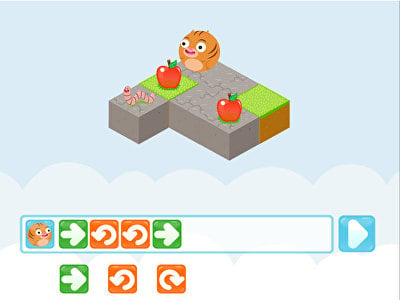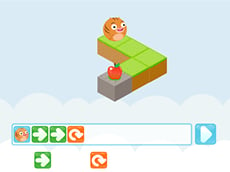Subtopics:
Educational 1st Grade Computer Science Games
About Educational 1st Grade Computer Science Games
On Education.com, parents and teachers can explore a variety of materials that introduce 1st graders to computer science concepts through interactive games and puzzles. These resources include visual block-based coding platforms, problem-solving activities, and sequencing exercises that teach foundational digital skills while engaging young learners. Such tools help children develop logical thinking, pattern recognition, and creativity in an age-appropriate format.
Education.com provides printable worksheets, interactive games, and lesson plans designed specifically to teach computer science to first-grade students. These resources offer hands-on learning that encourages exploration, pattern creation, and understanding small programming sequences without requiring typing or complex coding. Educators and parents can use these materials to supplement classroom instruction or support at-home learning.
Using 1st grade computer science games from Education.com makes it easy to introduce young children to foundational programming concepts while providing a fun and engaging way to learn technology skills. Educators and parents can access ready-to-use activities that foster problem-solving, logical sequences, and creativity, making the learning process enjoyable and educational.
Education.com provides printable worksheets, interactive games, and lesson plans designed specifically to teach computer science to first-grade students. These resources offer hands-on learning that encourages exploration, pattern creation, and understanding small programming sequences without requiring typing or complex coding. Educators and parents can use these materials to supplement classroom instruction or support at-home learning.
Using 1st grade computer science games from Education.com makes it easy to introduce young children to foundational programming concepts while providing a fun and engaging way to learn technology skills. Educators and parents can access ready-to-use activities that foster problem-solving, logical sequences, and creativity, making the learning process enjoyable and educational.







